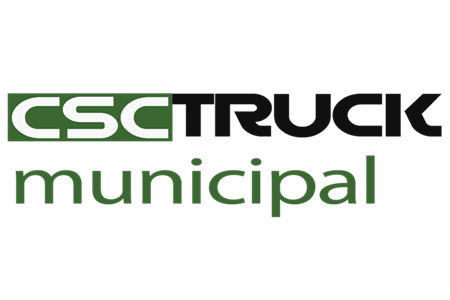Introduction
Garbage trucks are an essential part of our modern waste management systems. They play a crucial role in collecting and disposing of waste, ensuring that our communities remain clean and hygienic. However, these large vehicles have a significant environmental impact that cannot be ignored. From greenhouse gas emissions to noise pollution, garbage trucks contribute to various environmental issues. In this article, we will explore the environmental impact of garbage trucks and discuss strategies to minimize their adverse effects.
- Greenhouse Gas Emissions
One of the major environmental concerns associated with garbage trucks is their contribution to greenhouse gas emissions. Most garbage trucks run on diesel fuel, which releases carbon dioxide (CO2), a potent greenhouse gas when burned. In addition, diesel combustion also emits nitrogen oxide (NOx) and particulate matter, both of which have harmful effects on air quality and human health.
To minimize greenhouse gas emissions, transitioning garbage truck fleets to alternative fuels is crucial. Electric garbage trucks are an emerging solution that can significantly reduce emissions. These vehicles run on electricity, producing zero tailpipe emissions. Furthermore, investing in hybrid garbage trucks or those powered by compressed natural gas (CNG) can also reduce greenhouse gas emissions and improve air quality.
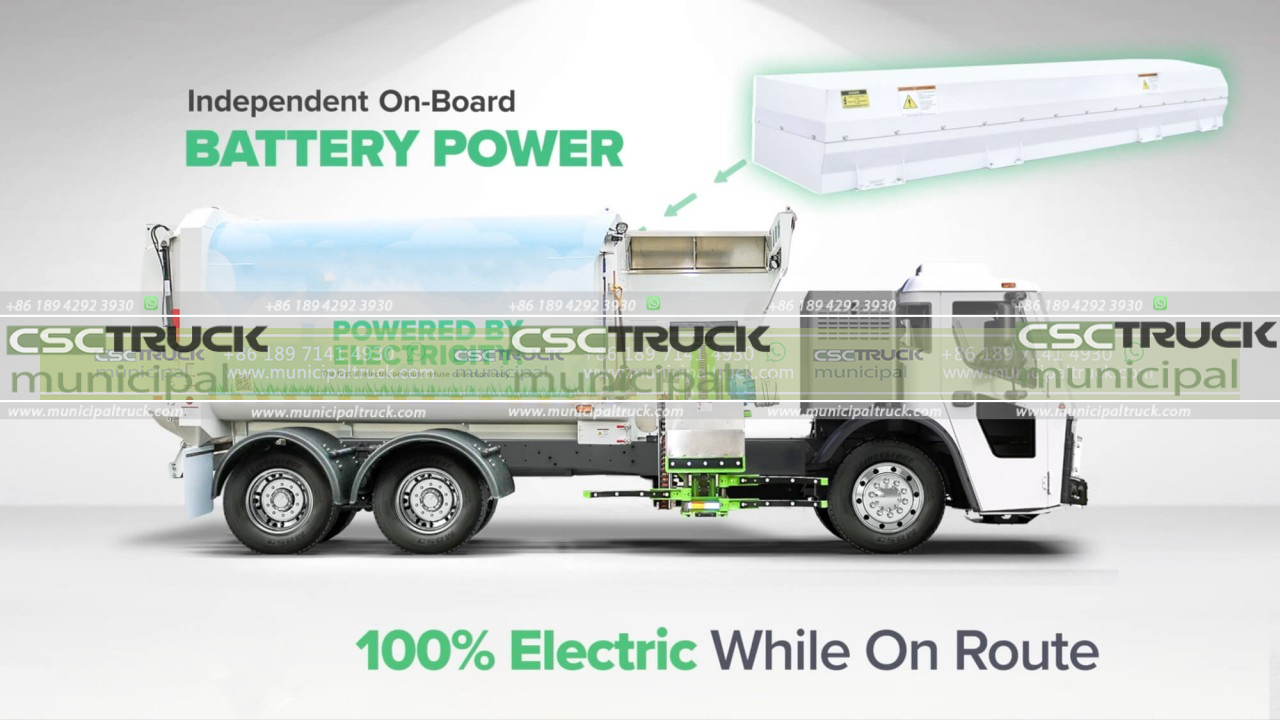
- Noise Pollution
Garbage trucks are notorious for their loud noises, especially during early morning collection routes. Noise pollution can disturb residents, impacting their quality of life and overall well-being. Additionally, noise pollution can have adverse effects on wildlife, causing stress and disrupting their natural habitats.
To mitigate noise pollution, several strategies can be employed. Implementing quieter equipment, such as hydraulic lifts, can minimize noise generated during waste collection. Moreover, scheduling garbage collection during less sensitive hours or in areas farther away from residential zones can help reduce the impact of noise pollution.
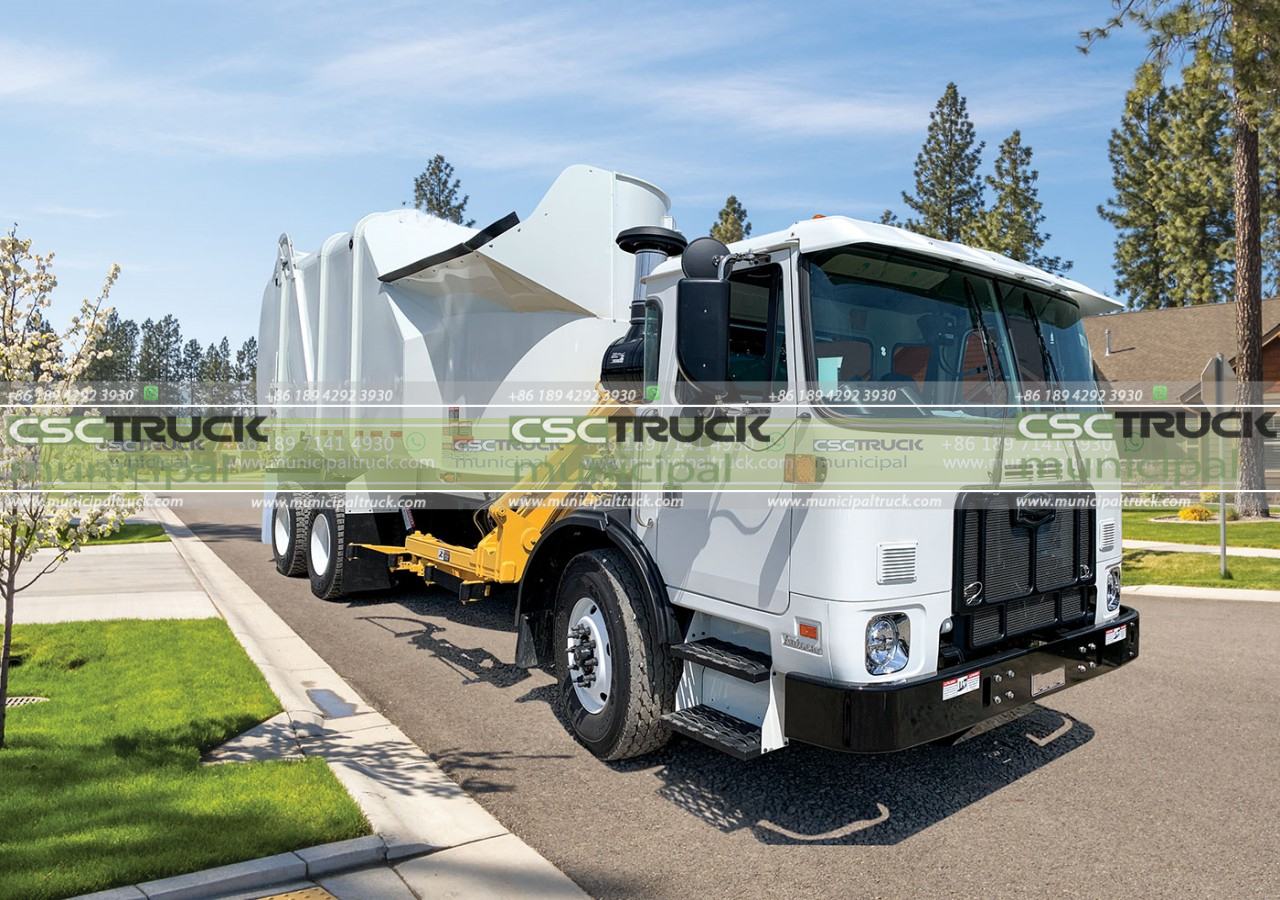
- Fuel Consumption
Garbage trucks consume a significant amount of fuel due to their frequent stops, idling, and heavy loads. High fuel consumption not only contributes to greenhouse gas emissions but also increases operational costs for waste management authorities. Therefore, adopting fuel-efficient practices and technologies is crucial to minimize both environmental impact and financial burdens.
One approach to reducing fuel consumption is optimizing garbage truck routes. By utilizing advanced route-planning software, waste management companies can optimize collection routes, minimizing travel distance and fuel consumption. Additionally, implementing start-stop technology and using lightweight materials for truck construction can further enhance fuel efficiency.

- Waste Minimization and Recycling
While garbage trucks are primarily responsible for collecting and transporting the waste, waste minimization, and recycling efforts can reduce their environmental impact significantly. Encouraging residents and businesses to reduce waste generation through source separation and recycling programs can help divert a significant amount of waste from landfills.
Municipalities can collaborate with waste management companies to provide education and resources on proper waste disposal practices. This includes promoting recycling, composting, and other sustainable waste management techniques. By reducing the overall amount of waste collected, the number of garbage truck trips can be minimized, resulting in reduced fuel consumption and emissions.
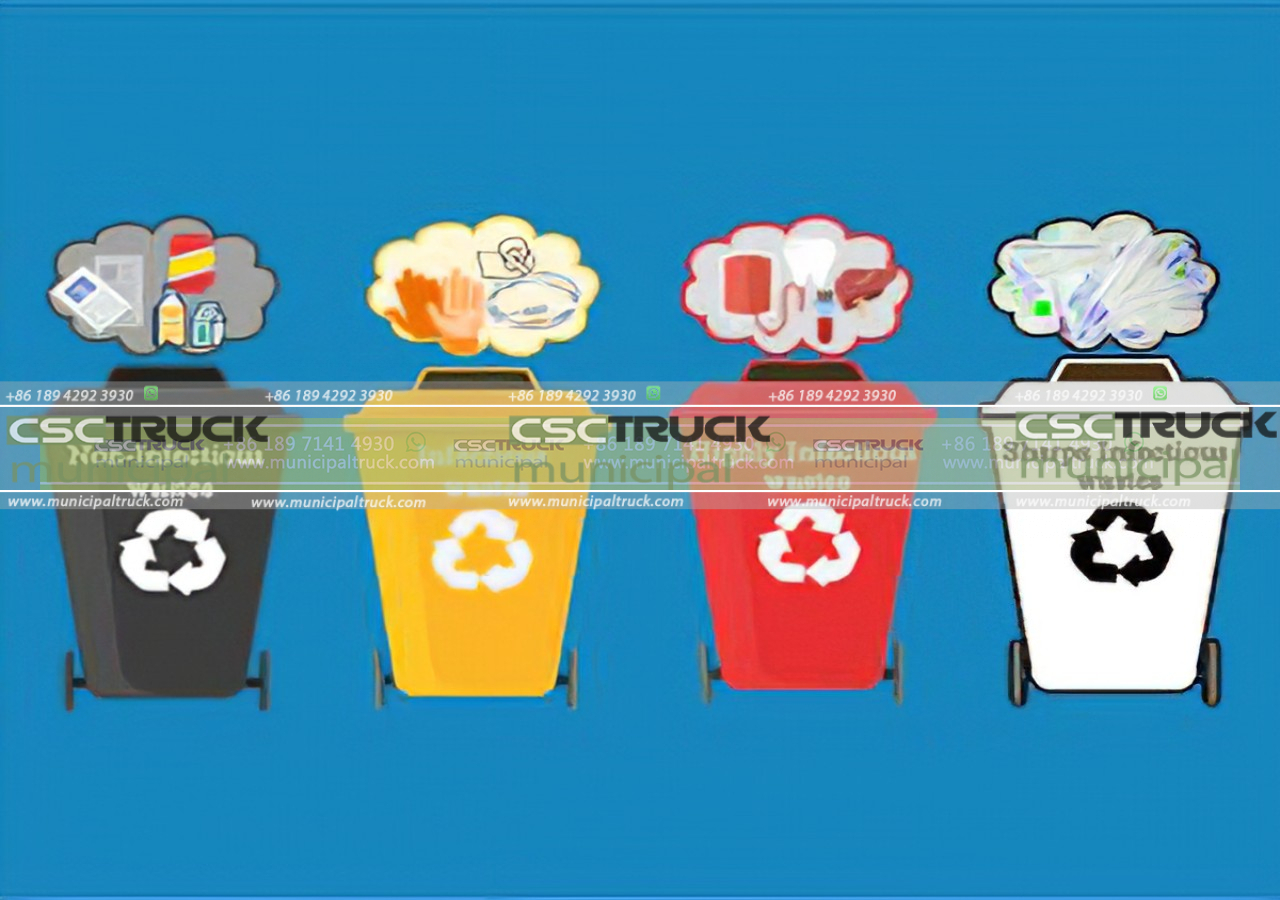
- Improved Maintenance and Vehicle Upgrades
Regular maintenance and vehicle upgrades are essential to ensure garbage trucks operate efficiently and minimize their environmental impact. Well-maintained trucks are more fuel-efficient and emit fewer pollutants. Simple practices like checking tire pressure, optimizing engine performance, and addressing maintenance issues promptly can go a long way in reducing environmental impact.
Moreover, investing in newer, more advanced garbage truck models can provide significant environmental benefits. Newer vehicles often come equipped with improved engine technologies, emission control systems, and energy-saving features. These upgrades can enhance fuel efficiency, reduce emissions, and contribute to a cleaner environment.

Conclusion
Garbage trucks are vital for waste management, but their environmental impact cannot be overlooked. From greenhouse gas emissions to noise pollution, these vehicles contribute to various environmental issues. However, by implementing strategies to minimize their impact, we can work towards a more sustainable waste management system.

Transitioning to alternative fuels is a key step in reducing the environmental impact of garbage trucks. Electric garbage trucks, powered by clean energy sources, offer a zero-emission solution. They not only reduce greenhouse gas emissions but also decrease air pollution and improve the overall air quality in communities. Investing in the infrastructure required for electric vehicle charging stations is essential to support the widespread adoption of electric garbage trucks.
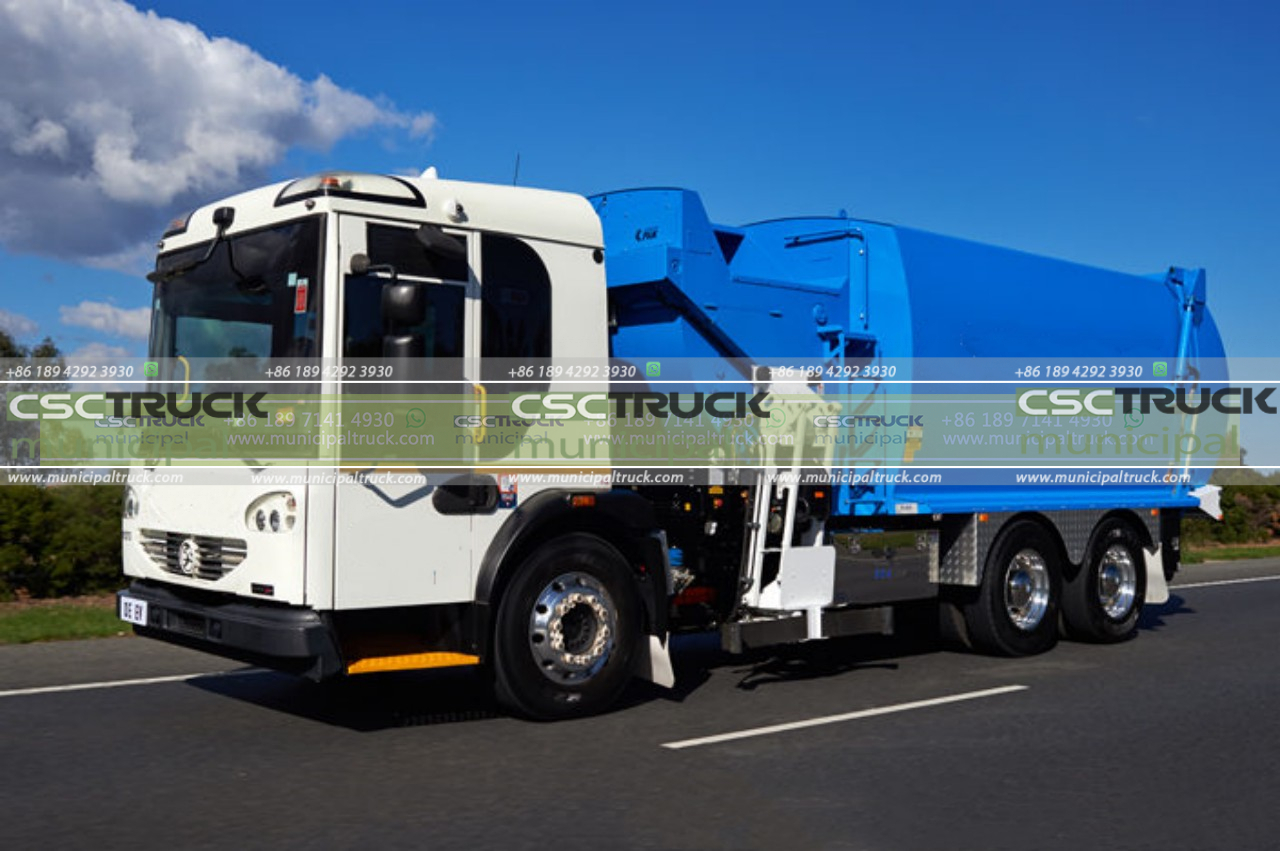 In addition to electric vehicles, hybrid garbage trucks and those powered by compressed natural gas (CNG) can also contribute to emission reduction. Hybrid trucks combine an internal combustion engine with an electric motor, resulting in lower fuel consumption and reduced emissions. CNG-powered trucks emit fewer greenhouse gases and have lower levels of particulate matter and nitrogen oxide compared to diesel-powered trucks.
In addition to electric vehicles, hybrid garbage trucks and those powered by compressed natural gas (CNG) can also contribute to emission reduction. Hybrid trucks combine an internal combustion engine with an electric motor, resulting in lower fuel consumption and reduced emissions. CNG-powered trucks emit fewer greenhouse gases and have lower levels of particulate matter and nitrogen oxide compared to diesel-powered trucks.
 Noise pollution caused by garbage trucks can be addressed through several measures. Implementing noise reduction technologies, such as hydraulic lifts and noise insulation materials, can reduce the noise generated during waste collection significantly. Furthermore, scheduling garbage collection routes during less sensitive hours, such as mid-morning or early afternoon, can help mitigate the impact on residents’ daily lives.
Noise pollution caused by garbage trucks can be addressed through several measures. Implementing noise reduction technologies, such as hydraulic lifts and noise insulation materials, can reduce the noise generated during waste collection significantly. Furthermore, scheduling garbage collection routes during less sensitive hours, such as mid-morning or early afternoon, can help mitigate the impact on residents’ daily lives.
To improve fuel efficiency, optimizing garbage truck routes is crucial. Advanced route-planning software can help waste management companies identify the most efficient collection routes, minimizing travel distance and reducing fuel consumption. Additionally, adopting start-stop technology that automatically shuts off the truck’s engine during prolonged stops can further enhance fuel efficiency. Lightweight materials, such as aluminum and composite materials, can be used in garbage truck construction to reduce weight and improve fuel economy.
Waste minimization and recycling efforts play a vital role in reducing the environmental impact of garbage trucks. Municipalities should promote and educate residents and businesses about source separation and recycling programs. By encouraging recycling and composting, a significant amount of waste can be diverted from landfills, reducing the number of garbage truck trips and the associated fuel consumption and emissions.
Regular maintenance and vehicle upgrades are essential to ensure garbage trucks operate efficiently and minimize their environmental impact. Waste management companies should prioritize regular inspections, engine tune-ups, and addressing maintenance issues promptly. By keeping the trucks in optimal condition, fuel efficiency can be improved, emissions can be reduced, and the lifespan of the vehicles can be extended.
Investing in newer and more advanced garbage truck models is also crucial. Modern vehicles come equipped with advanced engine technologies and emission control systems that minimize fuel consumption and emissions. Additionally, these vehicles may have features such as regenerative braking, which converts braking energy into usable power, further improving fuel efficiency.
In conclusion, while garbage trucks play a crucial role in waste management, their environmental impact should not be ignored. By implementing strategies to minimize greenhouse gas emissions, noise pollution, and fuel consumption, and promoting waste minimization and recycling, we can mitigate the adverse effects of garbage trucks on the environment. Collaboration between waste management authorities, municipalities, and the public is essential in creating a sustainable waste management system that minimizes the environmental impact of garbage trucks and works towards a cleaner and greener future.
Contact us for this municipal truck or similar trucks: [email protected] Call us or What's APP us: +86 189 4292 3930
